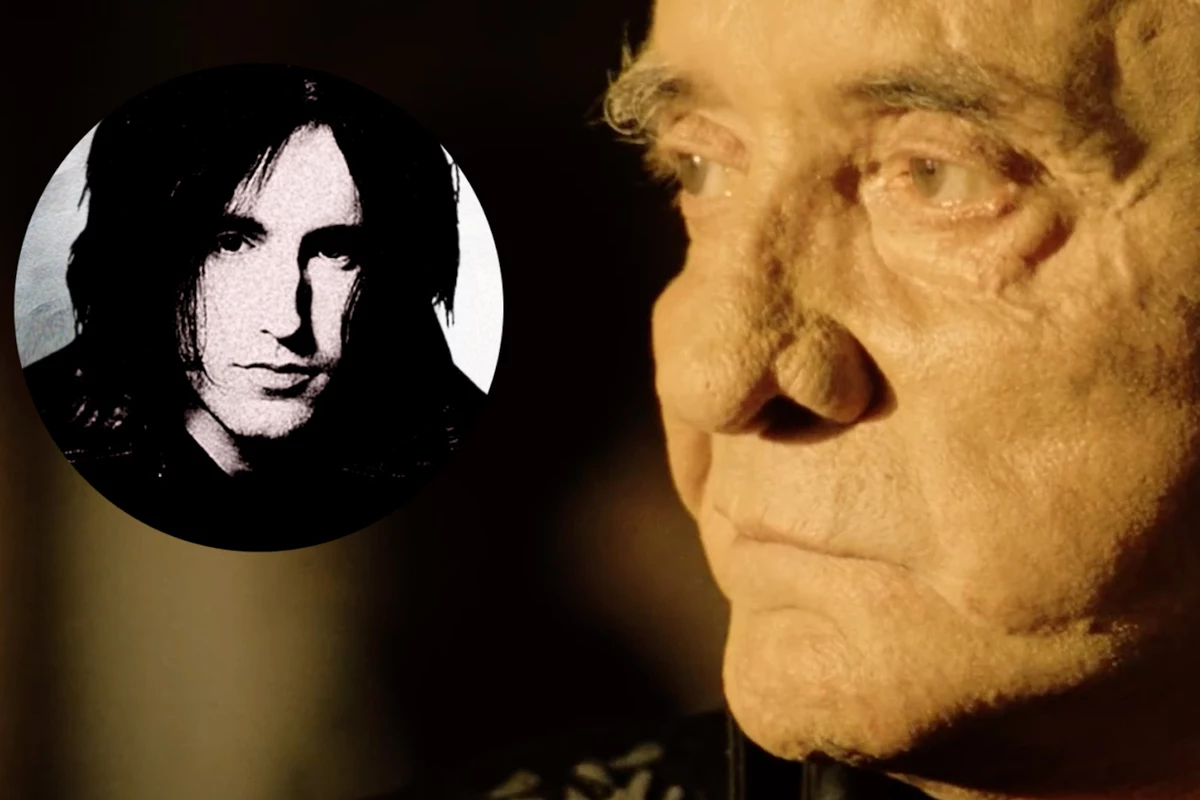This is the story of Johnny Cash‘s iconic cover of “Hurt” by Nine Inch Nails.
By the early ‘90s, Johnny Cash had fallen from grace. He’d spent much of the 1980s increasingly marginalized, chasing trends instead of setting them, and ultimately, Columbia, his record label of 25 years, dropped him. At the same time, he was recovering from a drug addiction relapse and health problems were creeping in. Johnny’s future in the music business was looking bleak.
It was after a show in 1992, where Johnny was approached by a young and hot record producer with an idea to help revitalize his career. Def Jam records co-founder, Rick Rubin, was at that show, and saw a still-vital artist who didn’t deserve an early sunset.
“I said, ‘If you had me on your record label, what would you do that nobody else has done?’” Cash recalled asking Rubin. “And he said, ‘What I would do is sit you in front of a microphone and record any song you want. Just you and the guitar.’ [I said,] ‘You’re talking about a dream I had a long time ago.’”
Back in the early ‘90s, Nine Inch Nails’ Trent Reznor rented out a Los Angeles house to write and record a new album. It was the famous house where Sharon Tate and her friends were murdered by the Manson family in the ‘60s. Reznor was not in a good spot emotionally — he was struggling with his new found fame and his sense of identity. To cope with his depression, he wrote a brutal depiction of self-loathing and emotional numbness that began, “I hurt myself today / To see if I still feel.”
Reznor later called the song “a valentine to the sufferer.” He sings the verses quiet and intimately, followed by the chorus where it feels like Trent’s releasing all the pain he felt inside of him.
“I’ve always had a sadness and a sense of of abandonment, I think, haunting me and never feeling like I fit in anywhere,” Reznor told Song Exploder. “Always feeling like an outsider. It’s not rational, it just happens often.”
Ultimately, Reznor was flattered a man of Johnny Cash’s stature would consider covering “Hurt,” so he gave the go-ahead.
Johnny’s version ended up more bare-bones. Acoustic guitar, with tasteful touches of organ and piano, which allowed Johnny’s aged and weathered voice to cut through, but it’s clear that age didn’t take anything away from Johnny’s greatness. His weakened voice allowed him to convey emotion in a deeper way, and you believe the wisdom he’s espousing.
“The lyrics have such a profound sense of regret,” Rubin told Lex Fridman. “And to hear, when you’re 20 years old, talking about regret, it’s heartbreaking, but it’s heartbreaking in a different way because you have your whole life to figure it out. When you’re looking back at your life at the end of your life with regret. It’s brutal. It’s brutal.”
What really changed the meaning of “Hurt” and what would lift it to a whole other level was the video. Directed by Mark Romanek, it unfolded like a mini-biography, blending archival footage, home movies, and a performance as strong as the song itself. Aware that he had little time to shoot the video, Mark flew to Tennessee to meet Johnny and found the perfect location — a decaying museum built in Johnny’s honor, the House of Cash Museum. In it, Mark uncovered stacks of old footage. A lightbulb went off when one of the first reels he watched showed a young Johnny riding a train. There was something about the footage of Johnny as a young, vibrant man, cut to him near the end of his life in a weathered old museum, that was undoubtedly powerful.
Three months after the video shoot, Johnny’s wife, June Carter Cash, died. Johnny himself died months later, just under a year after the release of American IV, his album with “Hurt” on it. It would end up being Johnny’s first album to achieve gold status in the U.S. in more than 30 years.
“Hurt” is a prime example of how powerful music can be. What was originally intended to be morose, insecure, and intimate, was a song juxtaposed with a country legend that was beautiful, emotional and introspective. Even though an industrial rock band like Nine Inch Nails penned this dark song that read like a suicide note, it transcended genre to prove that ultimately, the song only deals in one currency… genuine heartfelt emotion.
Watch the story of Johnny Cash’s “Hurt” in the video below.
The Greatest Cover Song of All Time?
Rockers We’ve Lost in 2022
Rock + Metal Musicians Who Died in 2022
